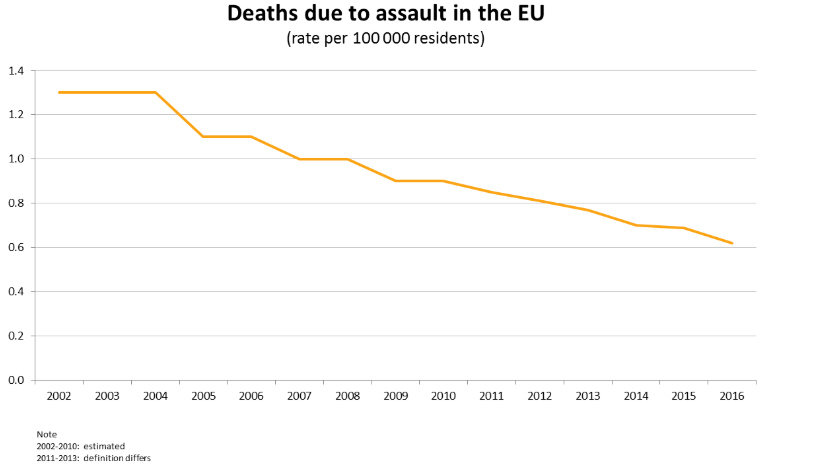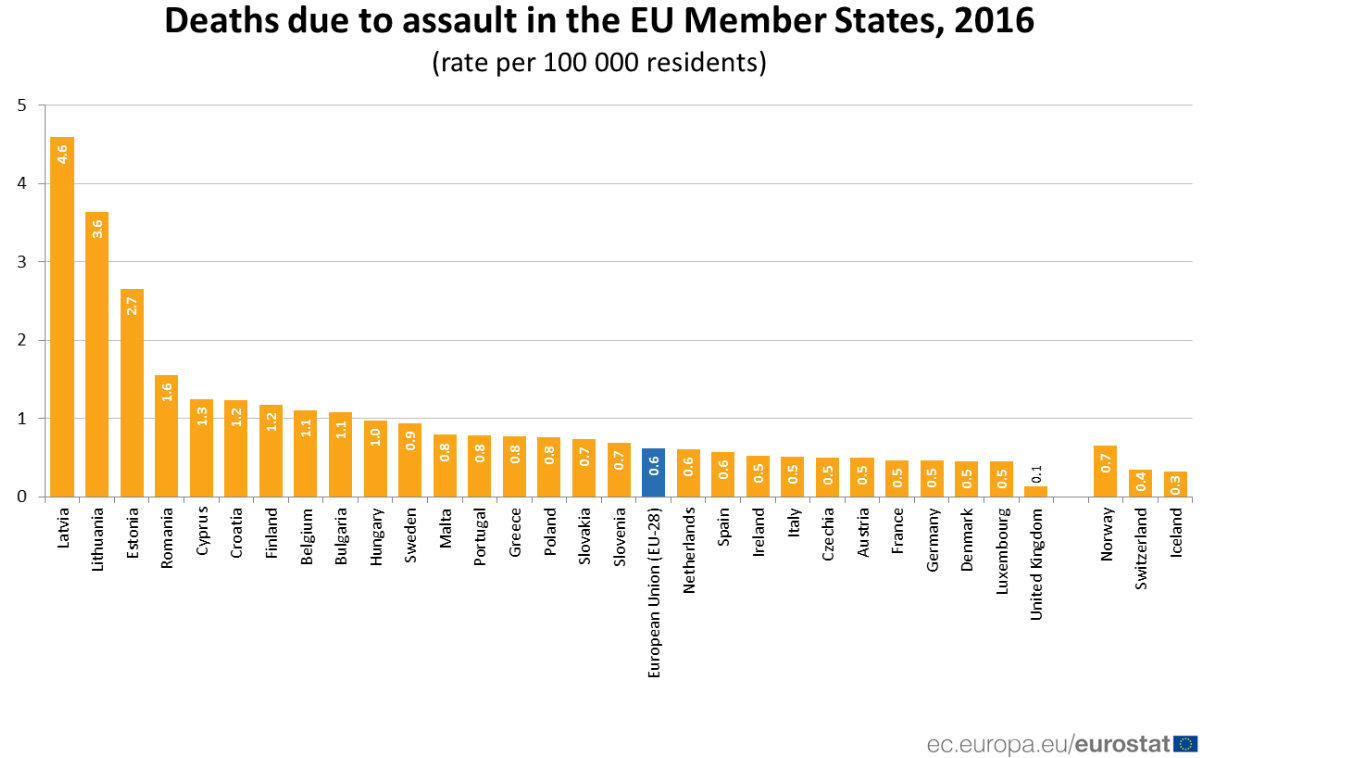A total of 5.1 million deaths were reported in the whole European Union (EU) in 2016. Of them, 3,300 (0.06%) were due to violent assaults and the vast majority of the victims (65%) were men, according to the latest data published by the statistical office of the EU (Eurostat).
Official figures show the assault-related death rate is declining. For example in 2002, the first year for which data are available, the rate stood at 1.3 cases per 100 000 inhabitants. Since then, it has gradually decreased, reaching 0.6 per 100,000 residents in 2016, the last year for which comparable data for all Member States are available.

Source: Eurostat.
Assault death rate highest in the Baltic States
With 4.6 assault-related deaths per 100 000 inhabitants, Latvia registered the highest rate among the EU Member States in 2016. Two other Baltic Member States, Lithuania (3.6 deaths due to assault per 100 000 inhabitants) and Estonia (2.7) also recorded relatively high rates of death due to assault.
Finland, with a rate of 1.2 assault deaths per 100,000 inhabitants, ranks seventh and doubles the average EU rate. In 2016 there were 66 cases recorded. Of those victims, 45 were men and 21 women.
However, the number of cases in Finland has fallen in recent years: there were 72 in 2015 and 76 in 2014. The still preliminary statistics for 2017 forecast a further decrease in Finland, with 62 deaths by assault.
At the opposite end of the scale, the United Kingdom recorded the lowest rate of deaths due to assault in 2016 (0.1 per 100,000 residents), followed by 8 Member States with a rate of 0.5: Luxembourg, Denmark, Germany, France, Austria, Czechia, Italy and Ireland.
According to the definition used by Eurostat, death is statistically due to assault if it results from homicide or injuries inflicted by another person with the intention of injuring or killing.
Deaths related to legal interventions or to war are excluded. In order to compare the rates between countries, the number of deaths has been standardised to take into account their different sizes and age structures, explained the EU statistical office.












